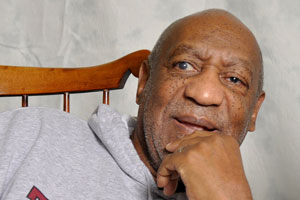After nearly five full days of deliberations, jurors in the high profile sexual assault trial of comedian Bill Cosby were unable to reach a unanimous verdict before the judge reluctantly agreed with defense attorneys and declared a mistrial. The ruling comes as a disappointment to prosecutors who worked diligently to build a case against the aging star, including use of toxicology and psychology expert witnesses called to bolster testimony from alleged victims.
Cosby Victim Claim Sexual Assault while Drugged
Andrea Constand, the central accuser in Cosby’s sexual assault trial — and the only one who Cosby has been accused of assaulting in these criminal proceedings — testified during the first days of the trial that she met Cosby while she worked for the Temple University women’s basketball team. She told jurors that in 2004 Cosby invited her to his Philadelphia home, where he gave her three blue pills telling her that they were herbal and would help her.
After taking the pills, she claimed she felt nauseous and began to slur her words before having to lie down because she could not see very well. Constand then tearfully testified that after she was drugged, the entertainer forced her to lie down on a sofa, fondled her, and made her touch him sexually as well. She told jurors she was not a willing participant, and wanted the encounter to end but could not move because of the effect of drugs.
Cosby, who did not take the stand during his trial, has, through his attorneys, maintained that the encounter with Constand, like the encounters with other accusers, was consensual and that the pills she took were Benadryl, which would not have had the effect on her that she testified.
Defense attorneys for Cosby hammered Constand during cross-examination, focusing on inconsistencies in her story, her continued communication with Cosby after the alleged incident, and her year-long delay in reporting Cosby’s alleged misconduct to the police. Prosecutors attempted to bolster Constand’s credibility as a witness with testimony from another alleged victim, and with testimony from experts in toxicology and psychology who could address some of the defense team’s substantive attacks.
Expert Witnesses Testify for Prosecution in Cosby Trial
During the last days of the prosecution’s case against the 79-year-old Cosby, the state called two expert witnesses to respond to apparent holes in Constand’s story and support her allegations. Clinical psychologist Dr. Veronique Valliere, an expert witness in sexual assault victim and offender dynamics, took the stand to explain to jurors the psychology of victims which can shed light on their response to sexual assault crimes.
Dr. Valliere told jurors that when an offender makes use of intoxicants during an assault, it is common for victims to experience confusion and guilt, particularly when the victim knows and loves the assailant. The confusion and trauma, which can be enhanced by intoxicants and a relation to the offender, contribute to a distorted memory and can result in inconsistencies when recalling the event.
Dr. Valliere noted further that victims who are assaulted by upstanding or famous members of their community can experience a great deal of fear, self-doubt, and guilt which can result in a delay in reporting the event. Cosby’s defense attorneys challenged Dr. Valliere’s credibility during cross-examination by pointing out comments the psychologist had made online which suggested she was happy that the entertainer was being prosecuted as a result of the allegations.
In an effort too clear up confusion about the type of drug Constand was given by Cosby, prosecutors called Dr. Timothy Rohrig, an expert in forensic toxicology, to discuss the effects of Benadryl, and whether the drug could have produced the effect Constand testified to experiencing.
According to Dr. Rohrig, a central nervous depressant like Benadryl could induce sleepiness, blurred vision, and poor muscle combination but the exact nature of these effects would depend on the dosage. Rohrig told the court that while it isn’t clear exactly how much of the medication Constand took, if she had taken three pills as she testified then she would have consumed 75ml, which is triple the adult recommended dosage of 25ml. Rohrig testified that Benadryl could be used in a sexual assault, pointing to a case in London where an offender used Benadryl and champagne to subdue his victims.
Expert Witnesses Not Enough in Cosby Trial
Ultimately, the prosecution’s use of clinical psychologist and toxicologist expert witnesses proved insufficient to earn a conviction. After close to 5 days of deliberations, jurors returned without a verdict and the case was declared a mistrial. Within minutes of the decision, prosecutors announced they would exercise their right to re-try the case and continue to seek justice for the alleged victims.
Cosby, through his attorneys and PR team, responded by claiming vindication, and calling the prosecution’s efforts to be politically motivated. Should a retrial occur, the process will not begin for several months as both sides prepare to move forward.




